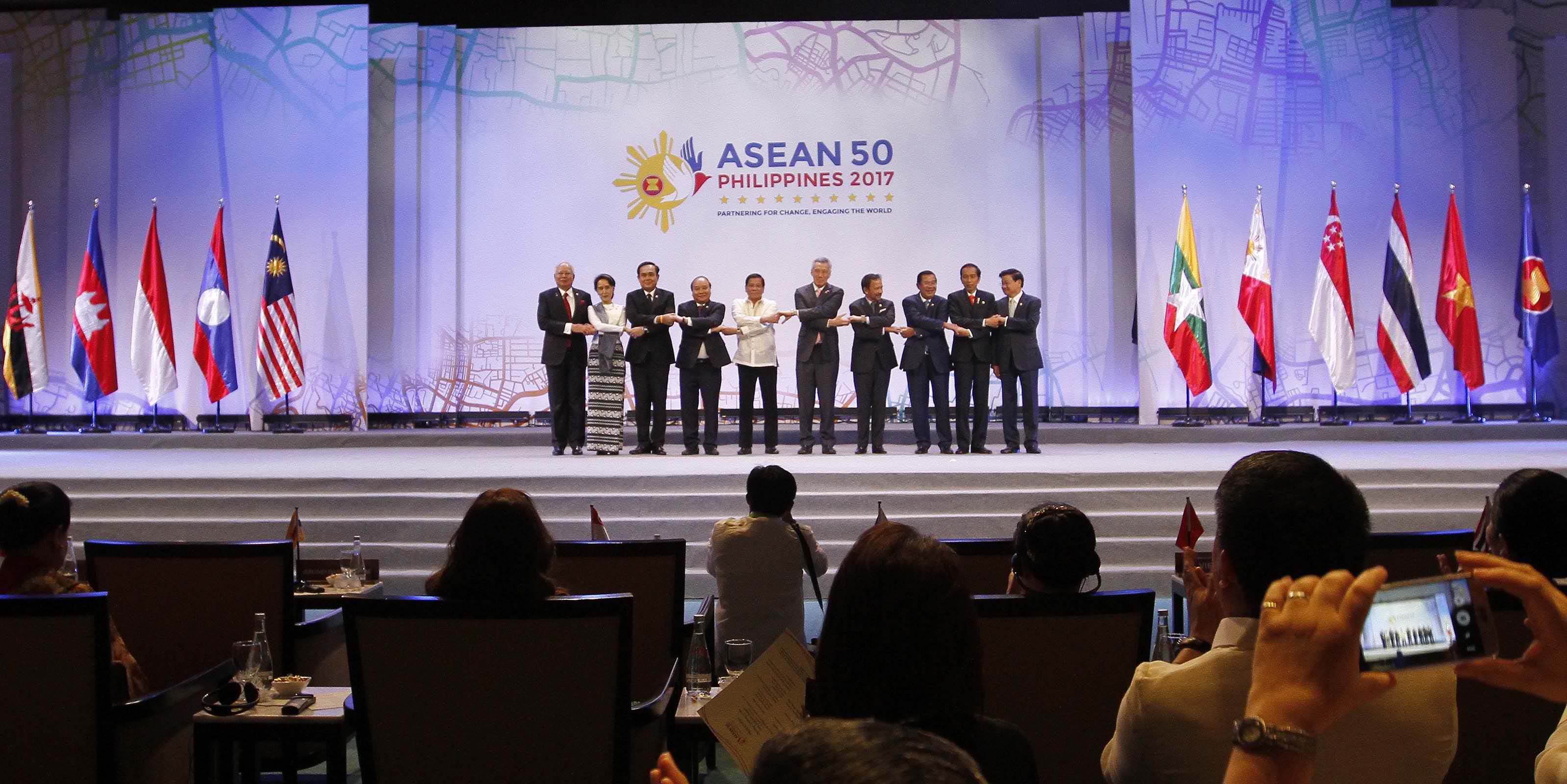Headline
HRW urges world leaders to address human rights crisis at APEC, ASEAN

FILE: HRW said that the international leaders should discourse about the bloody crackdown of illegal drugs or the “war on drugs” in the Philippines, the Rohingya crisis in Myanmar, the onslaught on dissenters in Vietnam and Cambodia, and the junta rule in Thailand. (Photo: Avito C. Dalan/ Philippine News Agency)
World leaders who will meet for the Asia-Pacific Economic Cooperation (APEC) Summit in Vietnam and the 31st Association of South East Asian Nations (ASEAN) Summit in the Philippines should address the “deteriorating” human rights situations in some ASEAN countries, Human Rights Watch (HRW) said on Thursday.
HRW said that the international leaders should discourse about the bloody crackdown of illegal drugs or the “war on drugs” in the Philippines, the Rohingya crisis in Myanmar, the onslaught on dissenters in Vietnam and Cambodia, and the junta rule in Thailand.
Heads of government from the APEC including the United States, China, Japan, Russia, Canada, Australia, and Mexico, will be meeting in Da Nang, Vietnam, on November 10 while leaders from ASEAN will be meeting in Manila, Philippines on November 12.
‘War on drugs’ in the Philippines
The human rights advocates group urged the heads-of-states to talk about the supposed extrajudicial killings in the Philippines which the group described as “a campaign of extrajudicial killings targeting drug dealers and users, whose victims are predominantly the urban poor, including children.”
“The anti-drug campaign has also seriously harmed free speech and political space in the Philippines… Surely, someone from among the 20 world leaders at these summits can confront Duterte about his horrific and unprecedented ‘drug war’ killings. Widespread summary executions of drug suspects are not just illegal, they are ineffectual and cruel,” HRW Asia Director Brad Adams said.
Rohingya Crisis
Adams also said the Rohingya Crisis is among the “worst human rights catastrophes in Asia in years,” urging world leaders to concert global action.
“World leaders shouldn’t return home from these summits without agreeing to targeted sanctions to pressure Burma to end its abuses and allow in independent observers and aid groups,” Adams said.
Since August 25, the Burmese military has carried out a campaign of ethnic cleansing against Rohingya Muslims in northern Rakhine State. Security forces have committed massacres, rape, looting, and mass burning of homes and property, causing the flight of more than 600,000 Rohingya refugees to Bangladesh.
HRW stressed that leaders should jointly call on the Burmese government to allow access to northern Rakhine State by the United Nations fact-finding mission and to discuss the creation of judicial mechanisms to hold perpetrators of abuses in Burma accountable.
“The International Criminal Court was created precisely to deal with crimes against humanity like those being committed in Burma,” Adams said. “Members of the Security Council attending the Asia summits should be discussing referring the situation in Burma to The Hague.
”
Crackdown on dissenters in Vietnam, Cambodia
Adams urged the visiting leaders to release political prisoners and stop prosecuting peaceful dissent.
HRW recently compiled a list of 105 political prisoners in Vietnam, highlighting 15 cases in a campaign for their release. Dozens of other dissidents remain in arbitrary detention, awaiting trial.
“Vietnam’s abusive one-party state is hosting a major summit while more than a hundred dissidents are languishing in prison,” Adams said.
Prior to the summit, Vietnamese authorities have placed other activists under house arrest or summoned them for questioning, according to reports from local human rights advocates.
Under Vietnam’s criminal law, criticizing the government or Vietnamese Communist Party can be treated as a national security threat.
“Why should it be a crime to criticize a government? That’s a question that ought to be asked of APEC’s Vietnamese hosts,” Adams said. “But it’s a question that will make other visiting leaders uncomfortable as well.”
HRW added that heads of states should press Cambodian Prime Minister Hun Sen to drop his government’s “baseless” legal attacks on the main opposition party, and demand the release of opposition politicians jailed on “trumped-up” charges.
Hun Sen has been in power for almost 33 years, making him the longest-serving head of government in Asia and nearly the longest-serving government leader in the world.
“As ASEAN meets, democracy is failing in Cambodia,” Adams said.
“Cambodia’s friends should denounce Hun Sen’s efforts to reinstate one-party rule and demand that he drop the bogus legal cases against the political opposition and its leaders,” he added.
Thailand’s junta rule
HRW noted that the allies of Thailand should use the Asia summits to insist that improved relations depend on the government abandoning ‘managed democracy’ and restoring civilian democratic rule and political freedoms.
Thai Prime Minister Gen. Prayut Chan-ocha led the May 2014 military coup ousting Thailand’s democratically elected government.
General Prayut’s junta rules Thailand with impunity, having banned political activity and peaceful assembly and arbitrarily detained thousands of people for criticizing the government, military, or monarchy, even for parodies and satire.
“Thailand was once one of Asia’s leading democracies, but now it is stagnating under military rule,” Adams said.





















